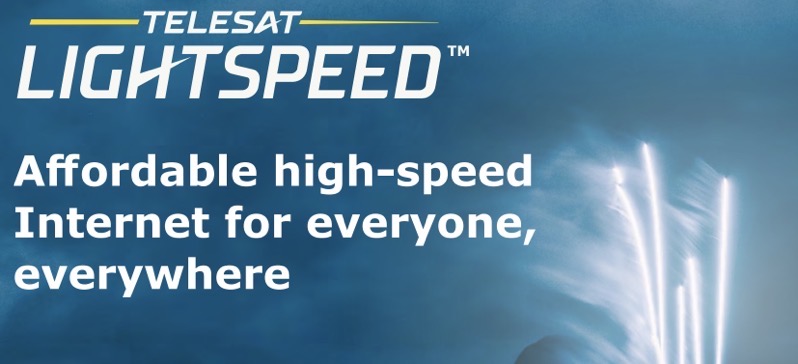
Telesat’s Satellite Internet Project Now Back on Track
Ottawa-based satellite operator Telesat has announced a significant shift in its Lightspeed constellation project, partnering with MDA as its primary supplier. This strategic move will save Telesat a whopping US $2 billion in capital expenditures. The Friday announcement caused its stock price to surge dramatically.
Originally estimated at US $5 billion, the Lightspeed project, designed to provide internet access to remote areas via 198 low-Earth-orbit (LEO) satellites, faced financial challenges due to the COVID-19 pandemic. Supply chain disruptions and inflation inflated the project’s cost to US $5.5-billion, necessitating Telesat to secure additional funding.
In March of this year, Telesat disclosed in its annual report a significant delay in its Lightspeed satellite constellation project. This delay posed a potential risk to its authorization to operate in both Canada and the United States.
Furthermore, the company had not yet obtained the required financing for the satellite network, which is designed to offer internet connections for commercial clientele.
This revelation came despite the federal government’s announcement in August 2021 of a $1.44 billion investment in the Lightspeed project. This investment comprised a $790-million repayable loan and a $650-million preferred share equity investment, promising dividend returns. Essentially, Canadian tax dollars are backing the Lightspeed project.
Telesat CEO Dan Goldberg commented on the challenges, telling the Globe and Mail, “Ever since, we’ve been working hard to get the program back on track.” Initially, Telesat had contracted the French-Italian aerospace manufacturer Thales Alenia Space to produce a 298-satellite constellation. MDA, renowned for creating the iconic Canadarm, was set to produce the phased array antennas for these satellites.
However, MDA’s recent advancements, including their investment in digital beamforming technology and their role as the primary contractor for 17 new LEO satellites for Globalstar Inc., made them a more attractive partner for Telesat.
Goldberg praised MDA’s new digital beam former, emphasizing its efficiency and capability. MDA’s onboard processor, which integrates with the digital beamformers, has been a game-changer for the project.
MDA’s CEO, Mike Greenley, highlighted the transformative nature of the new technology, allowing real-time reconfiguration of satellite beams, enhancing efficiency and adaptability.
Following this announcement, Telesat’s stock, which had been declining since its 2021 IPO, soared over 45% to $16.55 on the Toronto Stock Exchange. MDA’s stock also saw a significant rise of over 22% to $10.32.
The revised Lightspeed project, now scaled down to 198 satellites, has secured full funding for the initial 156 satellites. Goldberg confirmed that the remaining 42 satellites would be financed through the company’s cash flows, with the entire constellation expected to be operational by the end of 2027. Satellite launches are slated to commence in 2026.
Unlike SpaceX’s Starlink, Telesat aims to cater to the enterprise market segment, including governments, telecoms, and the airline and maritime sectors. Their new LEO constellation, orbiting just 1,000 kilometres above Earth, promises reduced latency, enhancing user experience.
In other words, you’ll be buying Lightspeed internet from a commercial reseller, not directly such as SpaceX’s model for Starlink.
With the project’s total cost now projected at US $3.5 billion, Telesat anticipates lower financing costs and a higher ROI. Goldberg expressed optimism about the project’s future, stating, “COVID set us back, but perversely I think we’ve ended up in a better place here.”
For MDA, this partnership represents a landmark $2.1-billion contract, the largest in its history.
Telesat still needs to launch its satellites into orbit and that’s another challenge in itself. We may still be some ways away from Lightspeed satellite internet going online. Whereas right now with Starlink, Canadian rural customers (it’s loosely defined) can buy the company’s hardware on sale for $199.


